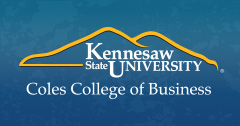Abstract
Group dynamics play a crucial role in group performance and effectiveness. The notion that people prefer to work with similar others in homogeneous groups is a common observation. Yet studies have revealed that homogeneity doesn’t necessarily translate into optimal group performance. In fact, research on group diversity has been fairly inconsistent; suggest the potential for some kind of underlying moderator variable. Using a sample of executive MBA students, this paper examines how group diversity and emotional intelligence are associated with group performance. We develop an integrative model that posits that the association between group heterogeneity and group performance becomes more positive as group emotional intelligence increases. Patterns of group performance are observed across different levels of group heterogeneity and within and between high and low emotionally intelligent groups. Findings revealed that group emotional intelligence predicts positive performance more strongly in a heterogeneous group than in a homogenous group. Results are discussed in connection with implications for group construction and for research in work group diversity.
